

While it is to be hoped that any puppy brought into the world is very much wanted and will be appropriately cared for and loved, this is not always the case. The early weeks of a puppy’s life are a very formative time in the development of the young dog, and if the puppy experiences poor treatment, cruelty or neglect during this time, it can be difficult to turn their experiences around and teach them about being a normal, happy and trusting dog.
Once a puppy has been hurt or badly treated by a person, the tenacious bonds of trust and positive associations that they should be building up with people will be broken, and regaining them takes time and patience. Puppies that have been abandoned or that were neglected during their early weeks will also have no frame of reference regarding people, and will be very naive and un-knowledgeable about what it means to live with people.
If you own or are considering taking on a puppy that has previously been abandoned or mistreated, you should think very carefully about your decision, as correcting the issues that the puppy will come with will take plenty of time and patience.
Read on to learn more about how to gain the trust of a puppy that has not had a good start to life.
Ensure that you have everything within your home all ready for the arrival of the puppy, as coming into a home that is in upheaval or does not have everything that your puppy will need to hand will present more stress to the dog. Make sure you have food, bedding, toys and a crate, and have decided upon the ground rules in terms of where your puppy is allowed to go within the home.
Once you get your puppy home, it is important that you are available to them and able to dedicate plenty of time to just being around them and working with them. This may mean that you will need to take some time off work, to ensure that you can be in with your puppy during the larger part of the day.
Allow your puppy to get used to their new environment, and to help them to feel more secure, restrict them to just one or two rooms of the house at first. Stay with your puppy in this area, but do not push your attention on them constantly; they may be afraid of people, not used to them, or still getting to grips with the new status quo. Talk to your puppy and generally get them used to the sound of your voice, and never raise your voice, argue, or speak sharply in the puppy’s presence.
Encourage them to approach you of their own volition, reward them and praise them for coming up to you, and generally begin to try to build up new positive associations with people in your young puppy’s mind.
While it is important to interact with your puppy and teach them that people are good, make sure you allow your puppy to have their own space too, and do not push yourself on them if they need quiet time and try to retreat. Teach your puppy their name, and get them used to it, and try to encourage your puppy to be the one that pro-actively seeks you out, and looks to you for security, reassurance, direction and to have their needs fulfilled.
Routine is important for all dogs, and never more than for a puppy whose life up until that point has been chaotic or unpredictable. Set up firm times for feeding, exercise, a routine of going outside to the toilet, and get them used to the normal times of the comings and goings within the home.
While socialisation, both with people and other dogs, is very important to puppies, do not create upheaval and stress during the early days by inviting lots of strangers into your home, or bringing over a lot of new people to see the puppy.
Over time, your puppy will begin to bond with you as they start to realise that you are not only not going to hurt them, but are also their primary caregiver, and will take care of all of their needs. Talking to your puppy (whether they are actively listening or not) is a great way to do this, as your puppy will come to associate your voice with being relaxed and happy. Make sure that you praise the puppy and make it a positive experience for them if they actively approach you, and keep a stream of treats to hand to encourage your puppy over to you.
Hand feeding them or encouraging them to come closer to you in order to eat, and ensuring that they are safe and not disturbed when eating will go a long way towards gaining your puppy’s trust and building your bond. Ultimately, while you can never remove the dog’s memory of a bad start in life, you should be able to teach them and re-train them to have a positive association with people in general, and you in particular.
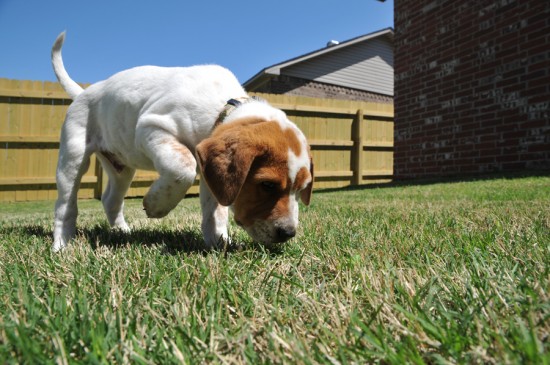 Thinking About Getting A Puppy?
Thinking About Getting A Puppy?
 Make Some Good New Year’s Resolutions For Your Dog
Make Some Good New Year’s Resolutions For Your Dog
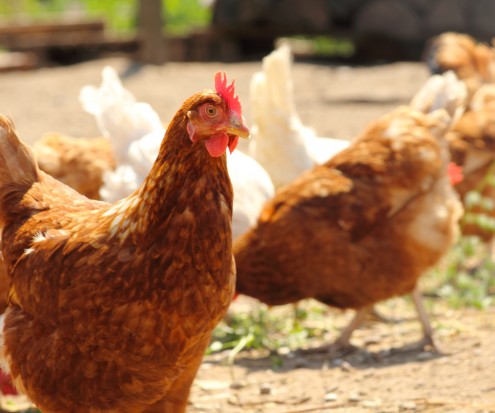 Understanding A Chickens Digestive System & Crop Function
Understanding A Chickens Digestive System & Crop Function
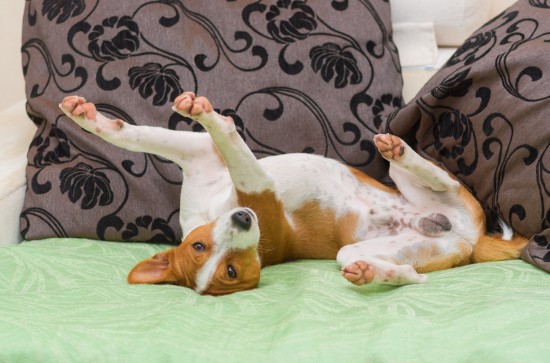 5 Great Ways To Keep Pet Hair Around The Home Under Control
5 Great Ways To Keep Pet Hair Around The Home Under Control
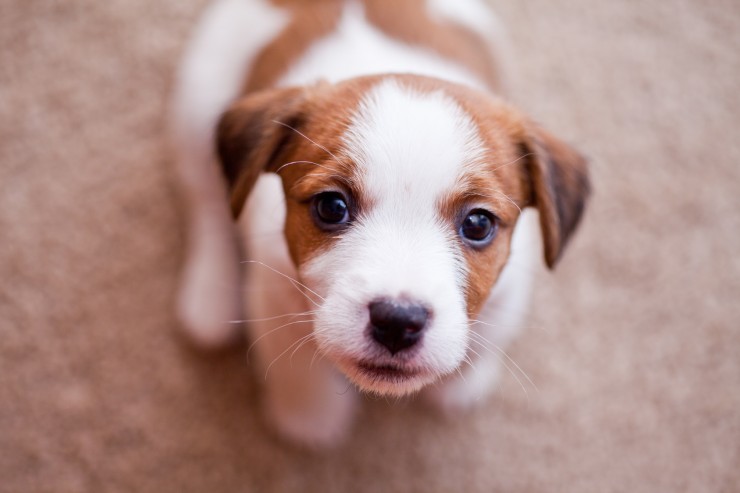 More Information On Canine Infectious Respiratory Disease (kennel Cough)
More Information On Canine Infectious Respiratory Disease (kennel Cough)
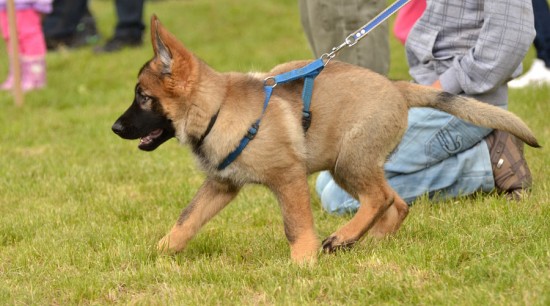 Puppy Problems - Nipping, Jumping Up, Barking, Housetraining And Socialising
Puppy Problems - Nipping, Jumping Up, Barking, Housetraining And Socialising
 Why Do Dogs Eat Grass?
Why Do Dogs Eat G
Why Do Dogs Eat Grass?
Why Do Dogs Eat G
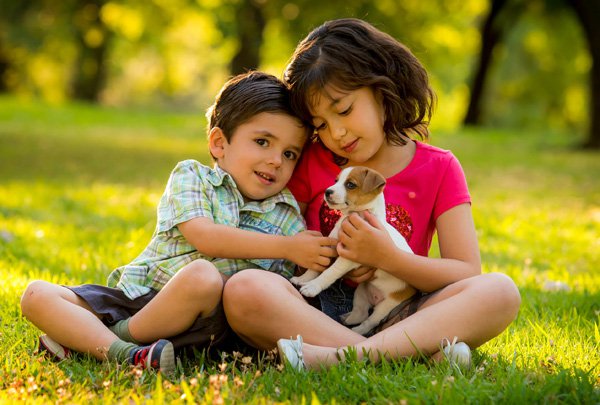 The Ideal Chicken Houses for Your Hens at Cost Effective Prices
The Ideal Chicken Houses for Your Hens at Cost Effective P
The Ideal Chicken Houses for Your Hens at Cost Effective Prices
The Ideal Chicken Houses for Your Hens at Cost Effective P
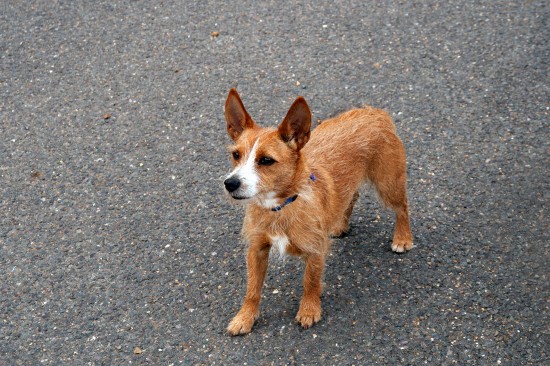 The Three Types Of Portuguese Podengo Dog
The Three Types O
The Three Types Of Portuguese Podengo Dog
The Three Types O
 Jumping Up to Say Hello
When dogs say hello to each other, they do so f
Jumping Up to Say Hello
When dogs say hello to each other, they do so f
 Gaining The Trust Of An Abandoned Or Mistreated Puppy
Gaining The Trust
Gaining The Trust Of An Abandoned Or Mistreated Puppy
Gaining The Trust
Copyright © 2005-2016 Pet Information All Rights Reserved
Contact us: www162date@outlook.com